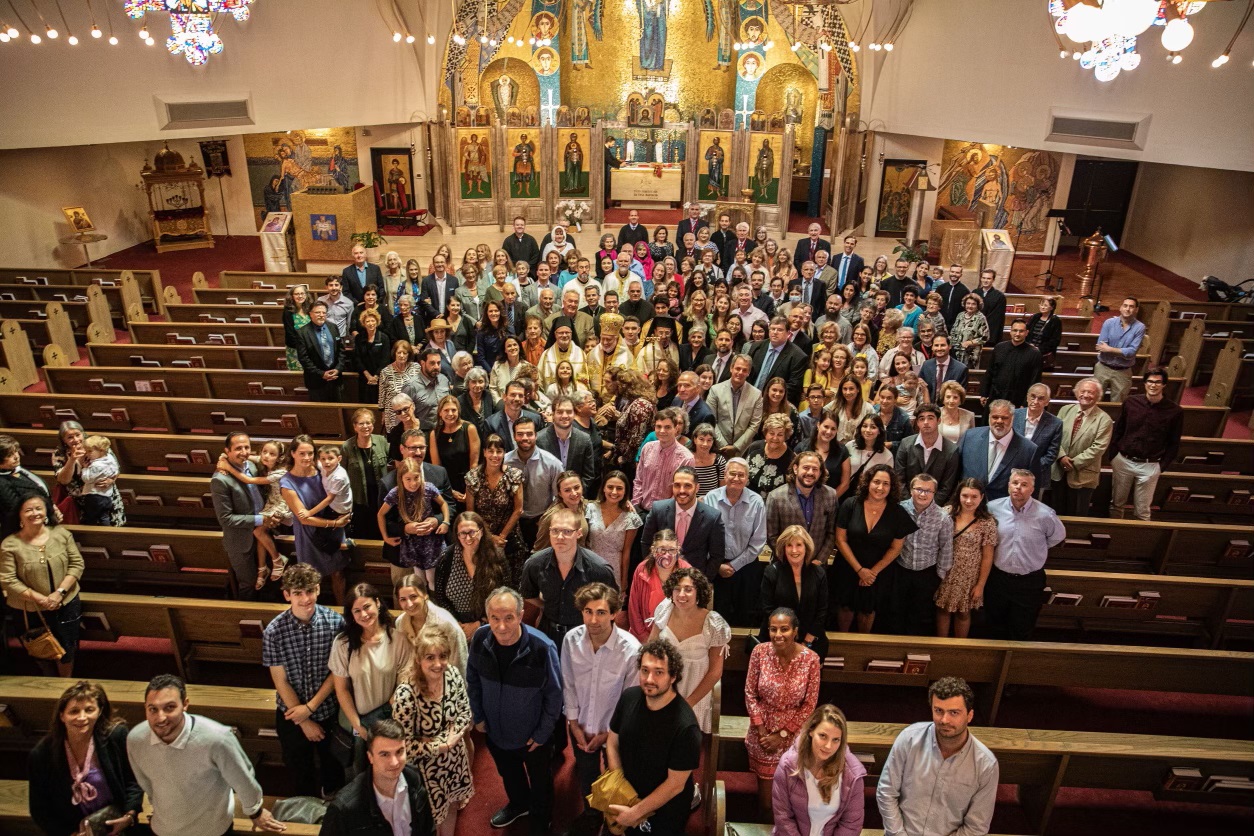“THE PATH OF THE RIGHTEOUS IS LIKE THE MORNING SUN, SHINING EVER BRIGHTER TILL THE FULL LIGHT OF DAY”. (PROV. 4:18)
AND WE ALL, WHO WITH UNVEILED FACES CONTEMPLATE THE LORD’S GLORY, ARE BEING TRANSFORMED INTO HIS IMAGE WITH EVER-INCREASING GLORY, WHICH COMES FROM THE LORD, WHO IS THE SPIRIT (II COR. 3:18)
When I began this series on spiritual formation, I did so by noting that the Bible assumes it to be self-evident that we can know God intimately and that it carefully illustrates how that intimacy is developed. This truth was enthusiastically embraced by both the early Church Fathers and later the Reformers. Each taught that Christian spirituality involves a deepening trust and developing friendship with God. More specifically, they taught that true spirituality is an ever growing, experientially dynamic relationship with our Trinitarian God–Father, Son, and Holy Spirit–through the agency of the His Word and the indwelling of His Spirit.
John Wesley, more so than any other Reformer, took an explicitly systematic approach to spiritual formation that proved to be remarkably successful. Scholars and historians believe that the reason his vision for spiritual formation was so highly effective was due to the fact that he defined Christianity itself as a way of life and not just a creed or doctrine. Wesley believed that a transformed heart ultimately resulted in a transformed life (holiness or Christlikeness). He even defined “Genuine Christianity” by describing it in terms of a heart shaped or formed by the Spirit. This paradigm for spiritual growth frames progress as not only what God expects from me but what he allows and provides for me through the means of grace.
However, Wesley’s genius for observation and analyses coupled with his long life and ministry gave him a unique perspective on how this played out in the individual lives of his Methodist converts. He wrote,
From long experience and observation I am inclined to think, that whoever finds redemption in the blood of Jesus, whoever is justified, has then the choice of walking in the higher or the lower path. I believe the Holy Spirit at that time sets before him “the more excellent way,” and incites him to walk therein, to choose the narrowest path in the narrow way, to aspire after the heights and depths of holiness, — after the entire image of God. But if he does not accept this offer, he insensibly declines into the lower order of Christians. He still goes on in what may be called a good way, serving God in his degree, and finds mercy in the close of life, through the blood of the covenant.
I have written this series of articles for those who seek the “higher path”; the “more excellent way”; the “heights and depths of holiness.” Yet I too, like Wesley, know that not everyone will develop the capacity nor even the desire for this level of spiritual intimacy and growth. Some will never believe it is even possible to live in the joy of Christ’s presence or be conformed to His image. Others will see holiness or Christlikeness as a “goal” of the Christian life but one that is not truly attainable. Either way, both are like a man born with a bad foot, they will just learn to “live with a limp” and assume that is the best that can be done for them until they are glorified in heaven.
Whatever path one ultimately follows, we are still confronted with this very important question, “What is the level of grace that God has provided for us and will ultimately require of us as a condition of final salvation?”
The Biblical doctrine of salvation demands that we answer such a question. The answer given by prominent Wesleyan theologian Richard Taylor is that, “the minimum measure of grace acceptable to God would be an intense desire for the maximum measure of grace available.”[1] Taylor’s statement hints of an irreducible minimum – one that is tied to both the revealed will of God in Scripture, as well as, God’s enabling grace in man and man’s capacity to respond to the grace.
I believe that there is a path that all Christians can follow that might be called the “irreducible minimum” of Biblical followership. I call it the “Path of the Righteous”. It requires that we:
- Pursue Holiness. “Pursue peace with all people,and [pursue] holiness, without which no one will see the Lord: looking carefully lest anyone fall short of the grace of God . . .” (Hebrews 12:14-15a). To pursue means to go after it with all my heart. It is like a hunter pursuing a catch. It means to pursue with all haste, earnestly desiring to apprehend.
- Walk in the Light. But if we walk in the light as He is in the light, we have fellowship with one another, and the blood of Jesus Christ His Son cleanses us from all sin (I John 1:7). Walking in the light is a figurative way of saying that we respond positively and obediently to all truth. The key idea here is obedience. God clearly expects us to obey his Word and Will.
- Maintain a good conscience. “This charge I entrust to you, Timothy, my child, in accordance with the prophecies previously made about you, that by them you may wage the good warfare, holding faith and a good conscience. By rejecting this, some have made shipwreck of their faith (1 Timothy 1:18-19). People who grow, pursue holy living and become mature believers keep a good conscience! The conscience is our internal rational capacity that bears witness to our value system. It prods us to do the right thing and pricks us when we have done the wrong thing! However, it is only a trustworthy guide when it is informed by and in submission to the Word of God. This is why it is so important that we allow the Word of God to both inform and transform our minds (Romans12:2).
- Embrace difficult circumstances and suffering. “And after you have suffered a little while, the God of all grace, who has called you to his eternal glory in Christ, will himself restore, confirm, strengthen, and establish you” (I Peter 5:10). God uses problems and their subsequent pain to mature and develop us into the kind of men and women He wants us to be. The very trials which may appear to be the means Satan employs for our destruction are the means God employs for our deliverance and development. Behind the opposition of unbelievers stands Satan seeking to devour us, and behind Satan stands God, sure to perfect and purify us. God is working through our struggles to produce strength of character.
- Maintain the fullness of the Holy Spirit. “And do not get drunk with wine, for that is debauchery, but be filled with the Spirit” (Eph. 5:18). This may be one of the most important verses in the New Testament for the Christian. It is foundational to everything else. There is nothing we need more. It is a command for all Christians and is the key to living an authentic, empowered life. Let me stress again, this is a command and not a suggestion. It’s an urgent imperative and not a casual option. “Be filled” means I play a part in it. For example, I cannot be filled with the Spirit while at the same harboring sin or conducting my life in the energy of the flesh. The verb form is the present tense meaning that it is a continuous appropriation. I must stay filled! I need to walk in conscious dependence on the Holy Spirit every moment of the day.
- Keep totally surrendered to God. “I beseech you therefore, brethren, by the mercies of God, that you present your bodies a living sacrifice, holy, acceptable to God, which is your reasonable service” (Rom. 12:1). This verse reveals the ultimate key to the victorious Christian life. It is of little good to know theoretically the truths of Romans 6-8 if the body is not surrendered so that the life of Christ can be expressed in our everyday walk. God does not compel and coerce us into presenting our bodies to Him. He does not corral us or bridle us like a horse and force us to obey. He wants an unbridled sacrifice so He simply pleads with us. This is the appeal of love and the language of grace!
The church has always had and will always have those who have sought the “higher path”; the “more excellent way”; the “heights and depths of holiness”! They have cooperated with the grace of God and found that joy-filled, abundant life in Christ. It is also true that the church has also had and will always have those who have followed in what Wesley calls the “good way” – serving God to their degree – yet failing to know experientially “what are the riches of the glory of His inheritance in the saints and what is the exceeding greatness of His power toward us who believe” (Eph. 1:17-19).
As for me, I want to cooperate as fully with the grace of God as I possibly can so that I may know “ the riches of His glory” and what it means to be “strengthened with might through His Spirit in the inner man, so that Christ may dwell in my heart through faith; that I, being rooted and grounded in love, may be able to comprehend with all the saints what is the width and length and depth and height— to know the love of Christ which passes knowledge; so that I may be filled with all the fullness of God”(Eph. 3:16-19). My benedictory prayer for each one who has followed this series is Ephesians 3:20-21:
“NOW TO HIM WHO IS ABLE TO DO IMMEASURABLY MORE THAN ALL WE ASK OR IMAGINE, ACCORDING TO HIS POWER THAT IS AT WORK WITHIN US, TO HIM BE GLORY IN THE CHURCH AND IN CHRIST JESUS THROUGHOUT ALL GENERATIONS, FOR EVER AND EVER!
AMEN.
[1] Richard Taylor, Life in the Spirit, (Beacon Hill Press, Kansas, MO., 1966).




